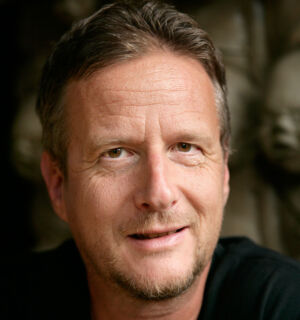
Yves Rubin is a Professor in the Department of Chemistry and Biochemistry at UCLA. He received his Diploma in Chemistry in 1987 from the University of Fribourg in Switzerland with Professors Albert Gossauer and Alexander von Zelewski as diploma thesis advisors. He received his Ph.D. degree at UCLA in 1991 under the guidance of Professor François Diederich. From 1991 to 1992, he was a postdoctoral fellow with Professor Ronald Breslow at Columbia University. In 1992, he joined UCLA as an Assistant Professor, and in July 1998 he was promoted to Associate Professor with tenure. He is currently a Full Professor since 2001. His research focuses on the design, synthesis, and investigation of novel π-conjugated organic molecules with curved or flat surfaces for molecular electronics. In particular, he has initiated a number of collaborative projects centered on the synthetic functionalization of fullerenes, along with the targeted opening of fullerene cages for the insertion of transition metals inside the cage (“molecular surgery”), as well as the design and synthesis of self-assembling fullerene derivatives for achieving optimal control over the phase-segregation of organic donor-acceptor systems in bulk-heterojunction organic solar cells, and most recently, a novel bottom-up synthesis of graphene nanoribbons using the topochemical polymerization of 1,4-diaryl-1,3-butadiyne derivatives. He has published ca. 114 publications, along with 2 patents, and has given over 155 invited and keynote lectures. Yves Rubin is the recipient of several awards including the UCLA AAP Faculty Appreciation Award (2008), the UCLA Glenn T. Seaborg Award (2002), the Alfred P. Sloan Research Fellowship (1998), the Ruzicka Prize (1997), the NSF Young Investigator Award (1994), the Arnold and Mabel Beckman Young Investigator Award (1994), and the Camille and Henry Dreyfus New Faculty Award (1992).